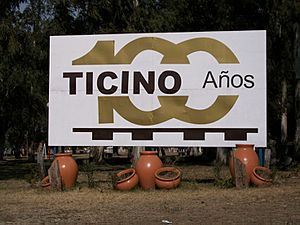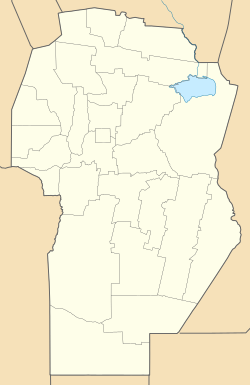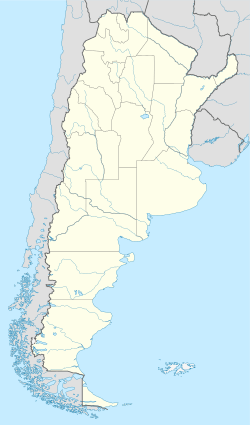Ticino, Argentina facts for kids
Quick facts for kids
Ticino
|
|
|---|---|
|
Village
|
|
 |
|
| Country | |
| Province | |
| Department | General San Martín |
| Foundation | 1911 |
| Elevation | 138 m (453 ft) |
| Population
(2010)
|
|
| • Total | 2,188 |
| Time zone | UTC−3 (ART) |
Ticino is a village located in the General San Martín Department in the Province of Córdoba in central Argentina. It is a small community with a population of around 2,188 people, based on 2010 numbers.
Contents
History of Ticino
Ticino was founded in 1911. It was started by two immigrants from Italy and Switzerland, Ricardo Simonini and Juan Thiele. The village grew up right next to the railroad tracks, which was common for many towns back then. People believe the name Ticino was chosen to honor the Ticino River and the Ticino canton (a region) in Switzerland.
Economy: How Ticino Makes Money
The main way people in Ticino make a living is through farming. After farming, raising animals (livestock) is also important. The most common crops grown here are soybeans, corn, and peanuts.
Powering the Village: The Thermoelectric Plant
Ticino is also home to the Lorenzati and Ruetsch Thermoelectric Power Plant. This plant is special because it uses peanut shells, which are a leftover product from local farming, to create electricity. It provides power to about 6,500 homes!
This power plant was very important during a big power outage in Argentina in 2019. Ticino was the only village in the entire country that was able to get its electricity back on quickly, thanks to this local power source.
Images for kids
See also

- Ticino (Córdoba) para niños (in Spanish)
 | Bayard Rustin |
 | Jeannette Carter |
 | Jeremiah A. Brown |




